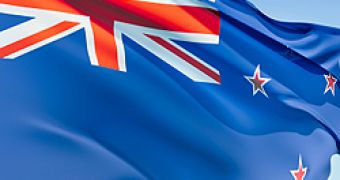A controversial anti-piracy bill according to which repeat copyright infringers will be disconnected from the Internet is being rushed by the New Zealand government.
Dubbed the Copyright (Infringing File Sharing) Amendment Bill, the proposed legislation is scheduled to undergo its second reading in Parliament today.
This came as a surprise to some MPs because today's urgent session was intended for discussing measures to help Christchurch recover after the devastating earthquake.
The anti-piracy bill will allow copyright owners who believe their rights have been infringed to request that ISPs send warning letters the the alleged offenders.
In cases of repeat infringement, the matter will be analyzed by the New Zealand Copyright Tribunal which can hand down fines of up to NZ$15,000.
If despite fines, the behavior does not stop, the offender can be disconnected from the Internet for a period of six months, a provision commonly referred to as the three-strikes rule.
The proposed legislation is also contested because it extends the definition of Internet service provider (ISP) to cover anyone with a shared Internet connection or a website.
Furthermore, it forces them to keep logs of all connections for analysis in case of copyright infringement claims.
The first reading of the bill, which took place in April 2010, was met with public protests, one involving webmasters willingly suspending their sites for a day or displaying banners that condemned the legislation.
Upon learning of the second planned reading, infuriated New Zealand Internet users have taken to Twitter to express their disapproval and try to organize new protests.
Similar three-strikes legislation was proposed and rejected in several European countries, including UK and Germany. However, one country where such a law exists, is France.
The original French HADOPI law passed voting in both chambers of the Parliament, but was later ruled unconstitutional. The Constitutional Council has since approved a revised version that requires judicial review in order to suspend a repeat offender's Internet access.

 14 DAY TRIAL //
14 DAY TRIAL //